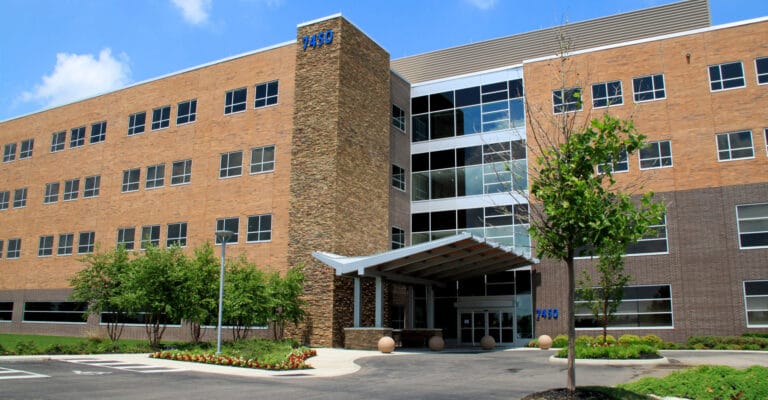Blood pressure is the term for the amount of pressure found in the vessels that carry blood throughout your body. In order to be healthy, it is important for your blood pressure to be at a normal level. When your blood pressure becomes too high, it can be problematic during all stages of life, especially during pregnancy. High blood pressure is a condition called hypertension, and if left untreated, it can cause problems for both mother and child. If you are pregnant and are at risk for developing high blood pressure, you may need special care. This page covers the basic information you should know about high blood pressure and how it can affect your pregnancy.
WHAT IS BLOOD PRESSURE?
Blood pressure is partly created by the beating of the heart. When it contracts, blood is sent away through the arteries, which carry it to the organs. The veins return blood to the heart. Small arteries called arterioles also affect blood pressure. They are lined with a layer of muscle, which is relaxed and dilated when blood pressure is normal, allowing for blood to flow through. However, if something signals the arterioles to increase blood pressure, they constrict (become smaller) and become narrower, which makes it harder for the blood to get through, thus raising the pressure.
Blood pressure can be checked with a stethoscope and a pressure gauge attached to a cuff. The reading it gives off has two numbers separated by a slash- for instance, 110/80 (110 over 80). The first number is the pressure in the arteries when the heart contracts, which is called systolic pressure. The second number is the pressure in the arteries when the heart is between contractions, which is called diastolic pressure.
Blood pressure varies from person to person, depending on many different factors. It can rise if you are exercising or are excited and falls when you are resting. These changes are normal, and it is only a problem when someone’s blood pressure stays consistently high. In non-pregnant women, less than 120/80 is an average, normal reading. However, if you are pregnant and your blood pressure is persistently over 140/90, it is considered elevated. Often in order to get a good, clear reading, it must be taken several times to get an average.
WHAT ARE THE DIFFERENT TYPES OF HIGH BLOOD PRESSURE?
There are two different types of high blood pressure.
- Chronic Hypertension: Chronic hypertension is high blood pressure that began before a pregnancy began and may continue to be high after the baby is born. Women with chronic hypertension can continue to take blood pressure medication during pregnancy. Sometimes the type of medication or the dose will need to be changed.
- Pregnancy-Induced Hypertension (PIH): This type of high blood pressure usually begins after 20 weeks of gestation. It can start early (20 weeks) or late (full-term) in the pregnancy. Usually, blood pressure will return to normal within six weeks of delivery. The diagnosis of PIH requires special follow-up during pregnancy and delivery.
WHAT EFFECTS DOES HIGH BLOOD PRESSURE HAVE ON PREGNANCY?
In order for a fetus to grow, it must receive nutrients and oxygen from the mother. This works when the mother’s blood flows through the placenta and the nutrients and oxygen pass through to the baby. When a woman has high blood pressure, it can cause less blood to be carried to the placenta, meaning that the fetus receives less oxygen and nutrients. This can cause the fetus to have slower growth, which may need to be monitored via ultrasound and electronic fetal monitoring.
If PIH is mild and kept under control, the woman will be more likely to have a healthy baby, and less likely to have serious side effects. If PIH becomes severe, these conditions can affect the mother:
- The kidneys, brain, liver, and eyes can be damaged.
- Protein may enter the urine.
- The heart may be weakened.
- Swelling of the hands and face (edema) may occur.
- Seizures (only in rare cases)may occur.
Untreated PIH can prove to be life-threatening for both mother and child.
WHAT WOMEN ARE AT RISK TO DEVELOP PIH?
Many women who develop PIH have never had a history of high blood pressure before. Oftentimes, the cause is unknown. However, it is known that the risk of developing PIH is greater in women who:
- Have a history of chronic hypertension or PIH.
- Are over age 40.
- Are pregnant for the first time.
- Are carrying more than one fetus.
- Have medical conditions like diabetes or kidney disease.
WHAT CAN I DO TO REDUCE THE CHANCE OF GETTING PIH?
- Lose weight through diet and exercise before pregnancy.
- Take medications as prescribed.
- See your doctor for routine prenatal care appointments to have your blood pressure checked.
- Alert your doctor about any important risk factors or medical problems related to high blood pressure that you may have.
- Tell your doctor if you develop any warning signs.
- Tell your doctor about all medications you take.
- Monitor your weight gain and eating habits. Reducing sodium intake can help with reducing blood pressure.
HOW IS PIH MEDICALLY TREATED?
Mild PIH is often treated with bed rest. This may be at home or at the hospital. Special labs and fetal monitoring are often required. If the symptoms and levels remain mild, the pregnancy is allowed to reach full term.
Severe PIH is often more difficult to control. The only real way to alleviate severe PIH is to have the baby. This decision about when to be induced depends on the risks for the mother as well as the risks of prematurity for the baby. Sometimes, natural labor may occur early, or it may be induced. Sometimes, a cesarean birth is needed. The early birth of the baby will only be a last resort.
IN CONCLUSION
If you already have chronic hypertension or are at risk for developing PIH, talk to your doctor about taking steps to prevent PIH from worsening. You may need special care. Talking with your doctor about ways to reduce your blood pressure can increase your chance of having a healthy baby.







